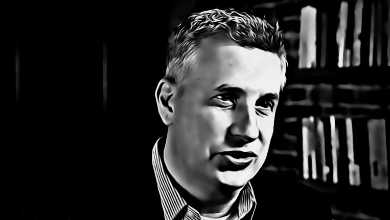No, Israel Is Not in Existential Danger of Civil War
This week, according to sources ranging from the Biden White House to Moody’s to The New York Times’ Thomas Friedman, Israel entered into a period of serious existential danger. What prompted this crisis? Not a potential Iranian nuclear attack; not the presence of violent terrorist groups embedded in Judea, Samaria and Gaza. No, according to our foreign policy elite, the breaking point is the Israeli government’s passage of a mild version of a judicial reform. That reform curbs the overweening power of the Israeli Supreme Court, which declared in the 1990s that it had the unilateral ability to strike down executive actions by simply declaring them “unreasonable.” Now, the Israeli Supreme Court will still be able to strike down executive actions — but they’ll have to ground their rationale in actual law, rather than simple political disagreement.
This judicial reform has prompted spasms of apoplexy in Israel among those who voted against the current coalition government. That isn’t so much about the actual content of the judicial reform; many of those in the center of the Israeli political spectrum fully acknowledge that the judiciary has arrogated too much power to itself. It’s more about the realization by many secular Israelis that the state of Israel is growing more religious on a demographic level. According to Pew Research data from May 2015, approximately 40% of Israelis identified as hiloni (secular); another 23% identified as traditional; 10% identified as religious Zionists; and 8% were ultra-Orthodox. Since then, the imbalance in favor of those with stronger religious ties has grown.
For decades, secular Israelis were willing to make some concessions to the more religious Israelis in terms of religious practice — for example, former Prime Minister David Ben-Gurion’s decision to grant military exemptions for ultra-Orthodox yeshiva students — but unwilling to grant governmental power to them. That unwillingness is what led to the so-called Judicial Revolution of the 1990s by secular Leftists.
Now that a religious and traditional coalition has taken power, many secular Israelis feel truly insecure. And they believe that if they lose any control over the judiciary, they may lose all power in the state, even as they disproportionately serve in the military and comprise a heavy share of the state’s economy. To that end, mass protests have been unleashed across the state of Israel, shutting down roads and even the airport; some military reservists have even threatened not to serve. All of this has been exacerbated by Left-wing politicians declaring that democracy itself was at stake if judicial reform became law — an obvious untruth.
Seeing this mass protest, the current government under Prime Minister Benjamin Netanyahu radically scaled back its original judicial reform proposal to the far milder version passed this week. Nonetheless, the media still covered that judicial reform as a wild exercise of authoritarian power — despite the fact that it is objectively far more authoritarian to shut down the workings of an elected government via non-electoral means than to shift power from an unelected judiciary to an elected executive branch. The Israeli coalition actually had virtually no choice but to pass the judicial reform — if they had done anything else, they would have conceded that their coalition had zero actual power despite an election. And that would have been the most dangerous antidemocratic precedent of all.
As Israel prepares to commemorate Tisha B’Av, the fast for the destruction of the First and Second Temples, Jews remember that “sinat chinam” — baseless hatred — is the cause of all destruction. The current conflagration in Israel will be healed, but not by legislation or protest. It will be healed by the Israeli people — who, contrary to the media coverage, still share a culture, history and tradition. In 1993, the Guttman institute of Applied Social Research found that 78% of Israelis always or sometimes lit Shabbat candles, while 81% always or sometimes fasted on Yom Kippur. Israelis do not see one another as enemies, even if they currently see one another as serious opponents. Generosity between secular and religious Jews will break the current ugly stalemate.
Israel will not collapse. It will not break into civil war. It will continue to be a fractious and chaotic country filled with highly opinionated people who fight with each other, protest each other, argue with each other — and then share arak and chamin and cholent and falafel.
Agree/Disagree with the author(s)? Let them know in the comments below and be heard by 10’s of thousands of CDN readers each day!



